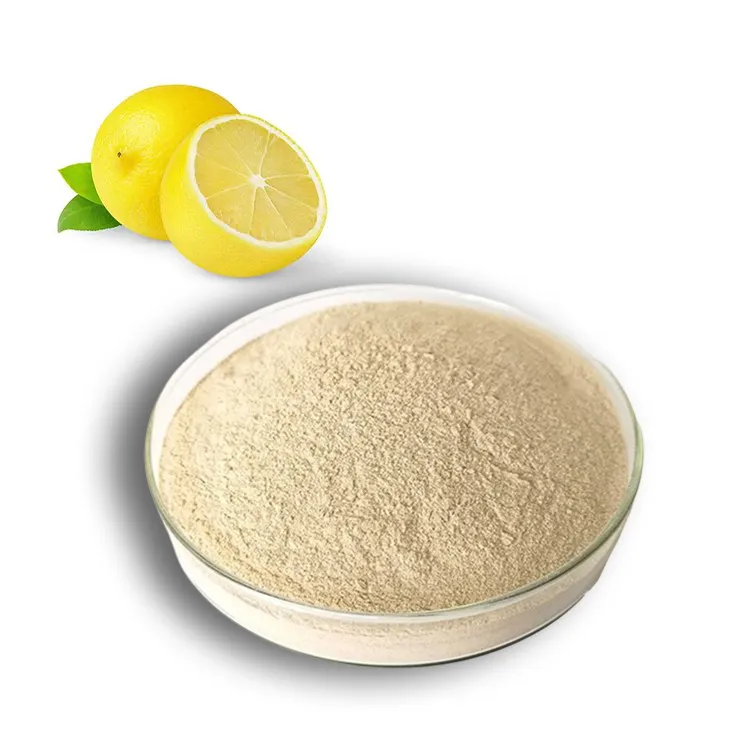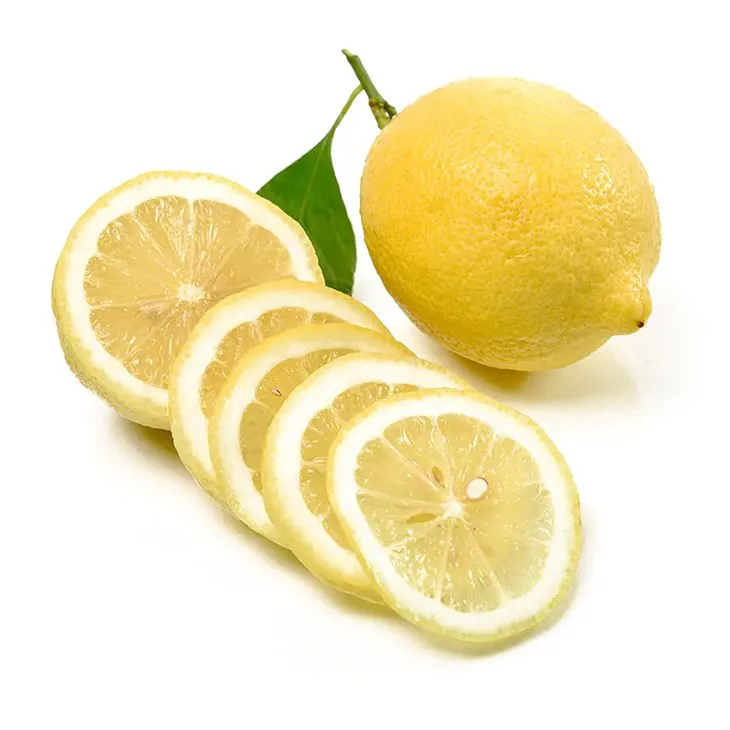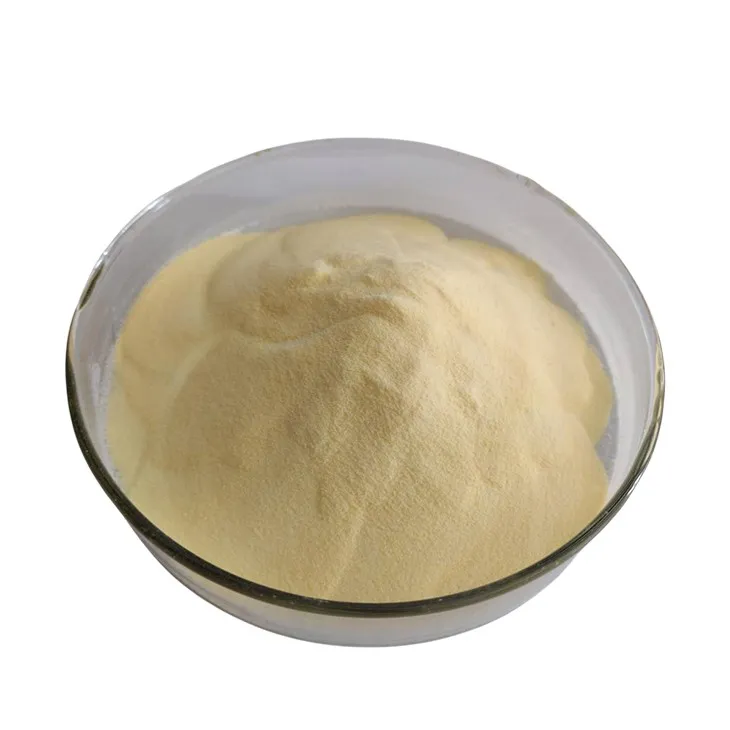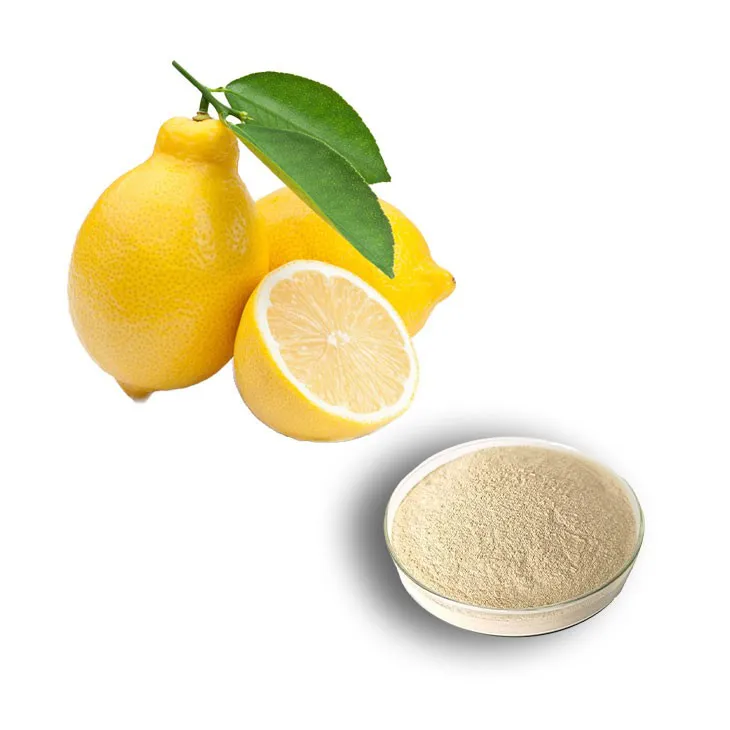- 0086-571-85302990
- sales@greenskybio.com
Application of Lemon Extract in Skin Care.
2024-11-11

1. Introduction
In the modern world, skin care has evolved from a simple daily routine to a complex and essential aspect of overall well - being. People are increasingly conscious about the health and appearance of their skin, leading to a surge in the demand for effective skin care products. Among the numerous natural ingredients that have gained popularity in the skin care industry, Lemon Extract stands out for its remarkable properties and diverse applications.

2. Properties of Lemon Extract
2.1 Antioxidant Properties
Lemons are rich in antioxidants such as vitamin C, flavonoids, and phenolic compounds. These antioxidants play a
crucial role in protecting the skin from free radical damage. Free radicals are unstable molecules that are
generated by various factors such as environmental pollution, ultraviolet (UV) radiation, and stress. When
free radicals accumulate in the skin, they can cause oxidative stress, which in turn leads to premature aging,
wrinkles, and dull skin.
The antioxidants in Lemon Extract neutralize free radicals by donating an electron, thereby preventing them from
causing harm to the skin cells. This helps in maintaining the skin's elasticity, firmness, and overall
youthful appearance.
2.2 Antibacterial Properties
Lemon extract also possesses antibacterial properties. It contains compounds such as citric acid and limonene
that have the ability to inhibit the growth of bacteria on the skin. Bacterial infections on the skin can lead
to various problems such as acne, folliculitis, and skin rashes.
By using skin care products containing lemon extract, the growth of bacteria can be controlled, reducing the
risk of these skin infections. This is especially beneficial for people with oily or acne - prone skin, as
excess oil on the skin can create a favorable environment for bacterial growth.
2.3 Whitening Properties
One of the most sought - after properties of lemon extract in skin care is its whitening effect. The high
concentration of vitamin C in lemon extract inhibits the production of melanin in the skin. Melanin is the
pigment responsible for skin color, and excessive production of melanin can lead to hyperpigmentation, such as
dark spots, freckles, and melasma.
By reducing melanin production, lemon extract can help to lighten the skin tone, giving it a more even and
radiant appearance. However, it should be noted that the whitening effect of lemon extract is gradual and
should be used in combination with proper sun protection to avoid further darkening of the skin.

3. Applications of Lemon Extract in Skin Care
3.1 Cleansing
Lemon extract can be used in facial cleansers due to its antibacterial and exfoliating properties. In a
cleanser, it helps to remove dirt, oil, and dead skin cells from the surface of the skin, leaving it clean and
refreshed.
For example, a natural lemon - based cleanser can be made at home by mixing lemon juice with a gentle facial
cleanser base. However, it is important to note that pure lemon juice should not be used directly on the skin
as it can be too acidic and may cause irritation. Dilution is key when using lemon - based products for
cleansing.
3.2 Toner
As a toner, lemon extract helps to balance the skin's pH level. After cleansing, the skin's pH may be disrupted,
and using a lemon - based toner can restore it to its normal level. A balanced pH is essential for maintaining
healthy skin as it helps to keep the skin's protective barrier function intact.
To make a simple lemon toner, one can mix lemon juice with distilled water in a proper ratio (usually 1:2 or
1:3, depending on the skin's sensitivity) and apply it to the skin using a cotton pad. This can also help to
tighten the pores and give the skin a smoother appearance.
3.3 Moisturizing
Although lemon extract is not a traditional moisturizing ingredient like oils or hyaluronic acid, it can
contribute to the overall moisture - retaining ability of the skin. When combined with other moisturizing
ingredients in a skin care product, it can enhance the effectiveness of the moisturizer.
For instance, in a cream - based moisturizer, lemon extract can help to improve the skin's texture and
radiance while the other ingredients provide the necessary hydration. This is because the antioxidant and
skin - rejuvenating properties of lemon extract can stimulate the skin's natural renewal process, resulting in
a more hydrated and healthy - looking skin.
3.4 Anti - Acne Treatment
Given its antibacterial and exfoliating properties, lemon extract is an effective ingredient in anti - acne
products. It can penetrate into the pores and kill the acne - causing bacteria, reducing inflammation and
preventing new acne breakouts.
In addition, the exfoliating action of lemon extract helps to remove the dead skin cells and sebum that can
clog the pores. This makes it an ideal ingredient for those with acne - prone skin. However, as mentioned
before, it should be used with caution to avoid over - drying or irritating the skin.
3.5 Anti - Aging
The antioxidant properties of lemon extract make it a valuable ingredient in anti - aging skin care. By
protecting the skin from free radical damage, it helps to reduce the appearance of wrinkles, fine lines, and
age spots.
Regular use of skin care products containing lemon extract can stimulate collagen production in the skin.
Collagen is a protein that provides structural support to the skin, and as we age, its production decreases,
leading to sagging skin. By promoting collagen synthesis, lemon extract can help to maintain the skin's
firmness and elasticity, giving it a more youthful look.

4. Precautions When Using Lemon Extract in Skin Care
While lemon extract offers many benefits for the skin, there are also some precautions to be taken when using it in skin care products.
- Skin Sensitivity: Lemon extract is acidic, and for those with sensitive skin, it may cause irritation, redness, or burning sensations. It is advisable to do a patch test before using any lemon - based skin care product. Apply a small amount of the product on a small area of the skin, such as the inside of the wrist or behind the ear, and wait for 24 - 48 hours to check for any adverse reactions.
- Sun Sensitivity: The use of lemon extract can increase the skin's sensitivity to sunlight. This is because the exfoliating action of lemon extract may thin the outermost layer of the skin, making it more vulnerable to UV damage. Therefore, when using lemon - based skin care products, it is essential to apply a broad - spectrum sunscreen with a high SPF during the day.
- Proper Concentration: Using lemon extract in high concentrations can be harmful to the skin. It is important to follow the recommended dosages and formulations when using products containing lemon extract. Most commercial skin care products that use lemon extract have been formulated to ensure its safety and effectiveness at appropriate concentrations.

5. Conclusion
In conclusion, lemon extract has a wide range of applications in skin care due to its antioxidant, antibacterial, and whitening properties. It can be used in various skin care products such as cleansers, toners, moisturizers, anti - acne treatments, and anti - aging products. However, it is crucial to be aware of the precautions when using lemon extract to avoid any potential harm to the skin. With proper use, lemon extract can be a valuable addition to a skin care routine, helping to improve the health and appearance of the skin for different skin types.
FAQ:
What are the antioxidant properties of lemon extract in skin care?
Lemon extract contains various antioxidants such as vitamin C. These antioxidants can help combat free radicals in the skin. Free radicals are unstable molecules that can damage skin cells, leading to premature aging, wrinkles, and dull skin. By neutralizing these free radicals, the antioxidant properties of lemon extract can help keep the skin looking healthy, youthful, and vibrant.
How does lemon extract show antibacterial effects on the skin?
Lemon extract has natural antibacterial compounds. These can help prevent and treat bacterial infections on the skin. For example, it can be effective against acne - causing bacteria. By inhibiting the growth of these bacteria, lemon extract can reduce the occurrence of acne breakouts, soothe inflamed skin, and promote overall skin health.
Can lemon extract really whiten the skin?
Yes, it can. The main reason is its high content of vitamin C. Vitamin C can inhibit the production of melanin in the skin. Melanin is the pigment that gives color to our skin, and excessive melanin production can lead to dark spots and uneven skin tone. By reducing melanin production, lemon extract can help lighten the skin, fade dark spots, and give the skin a more even and bright complexion.
Is lemon extract suitable for all skin types?
While lemon extract offers many benefits, it may not be suitable for all skin types. People with sensitive skin need to be cautious. Lemon extract is acidic, and it may cause irritation or allergic reactions on sensitive skin. However, for normal, oily, or combination skin, it can generally be used with proper dilution and formulation. It is always advisable to do a patch test before using any product containing lemon extract on the face or body.
How can lemon extract be incorporated into a skin care routine?
Lemon extract can be incorporated in various ways. It can be found in many commercial skin care products like creams, serums, and masks. You can also make your own DIY skin care products at home. For example, you can make a lemon - based face mask by mixing lemon juice with honey and yogurt. However, when using lemon extract directly, it should be diluted properly to avoid over - acidity which may harm the skin.
Related literature
- The Role of Natural Extracts in Skin Care: A Focus on Lemon Extract"
- "Antioxidant and Skin - Whitening Effects of Lemon - Derived Compounds"
- "Lemon Extract: Its Antibacterial Activity and Application in Dermatology"
- ▶ Hesperidin
- ▶ citrus bioflavonoids
- ▶ plant extract
- ▶ lycopene
- ▶ Diosmin
- ▶ Grape seed extract
- ▶ Sea buckthorn Juice Powder
- ▶ Beetroot powder
- ▶ Hops Extract
- ▶ Artichoke Extract
- ▶ Reishi mushroom extract
- ▶ Astaxanthin
- ▶ Green Tea Extract
- ▶ Curcumin Extract
- ▶ Horse Chestnut Extract
- ▶ Other Problems
- ▶ Boswellia Serrata Extract
- ▶ Resveratrol Extract
- ▶ Marigold Extract
- ▶ Grape Leaf Extract
- ▶ blog3
- ▶ blog4
- ▶ blog5
-
Organic Tongkat Ali extract powder factory.
2024-11-11
-
How to make powder with ashwagandha extract.
2024-11-11
-
Rosehip extract manufacturers from China.
2024-11-11
-
The best cat's claw extract in nature.
2024-11-11
-
Chinese Dandelion Leaf Extract Suppliers.
2024-11-11
-
Beta Carotene
2024-11-11
-
Maitake Mushroom Extract
2024-11-11
-
Citrus Aurantii Extract
2024-11-11
-
Kelp Extract Powder
2024-11-11
-
Lavender Extract
2024-11-11
-
Buckthorn bark extract
2024-11-11
-
Wheat Germ Extract
2024-11-11
-
Almond Extract Powder
2024-11-11
-
Golden Seal Extract
2024-11-11
-
Sophora Flavescens Root Extract
2024-11-11





















